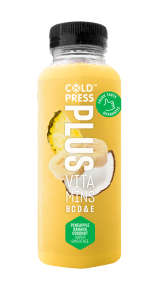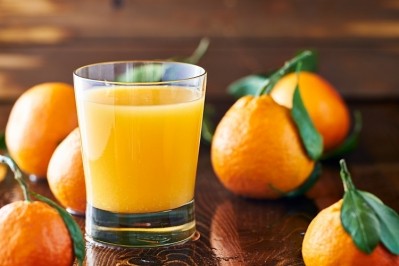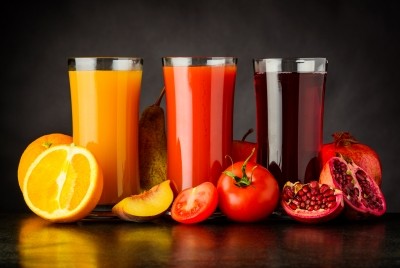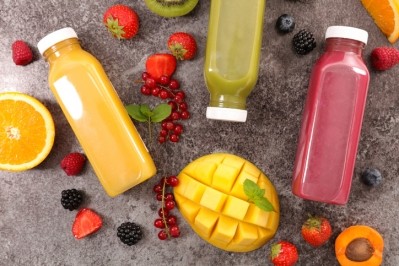‘We are about democratising HPP’: Coldpress founder on revitalising the juice market
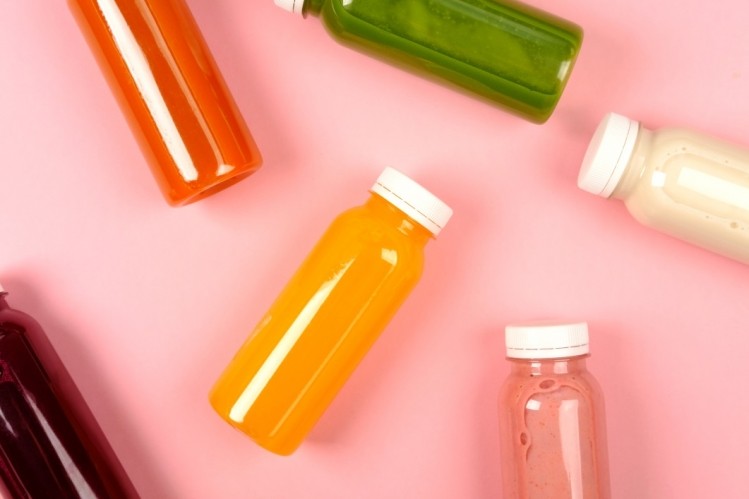
Coldpress was founded in the UK in 2011 on the heels of Andrew Gibb’s successful foray into the Australian cold pressed juice sector with Preshafruit.
Coldpress uses HPP (High Pressure Processing) technology to treat cold pressed juices. Once pressed, the juice is bottled and then submerged in water and subjected to a high level of isostatic pressure (300–600MPa/43,500-87,000psi).
The high pressures kill the vegetative flora (bacteria, virus, yeasts, moulds and parasites) present in food, extending the product's shelf life importantly and guaranteeing food safety. However, unlike pasteurisation, the juice is not heat-treated. This means that it retains a ‘fresh’ flavour as well as benefiting from an extended shelf life, according to Gibb.
“HPP delivers a fresher taste and retains more nutrients than pasteurised juices. Nutrients and taste ‘volatiles’ are both heat sensitive because no heat is used in HPP. None of the vitamins and fresh taste are flashed or cooked off in the pasteurisation process. What makes Coldpress different to other manufacturers is that we are obsessive about the efficiency of our HPP process,” he told FoodNavigator.
In an attempt to woo European consumers – which represent a market potential of 200m-plus consumers versus the 20m people in Oz – the company launched in Waitrose in late 2011. But Coldpress faced some initial teething problems: from co-packers that failed to deliver the quality that Gibb was looking for, to an overall depressed juice market.
“HPP as a business went through a growth curve but in markets like the UK it has really come under pressure in recent years. A, from the competitive response, but B the cold pressed products that were being produced for the UK market simply weren’t good enough. They weren’t providing enough of a competitive advantage or differentiation. They weren’t showing off the benefits of the tech to justify the price premium.”
Supply chain overhaul
A critical learning for Coldpress was the importance of supply chain, Gibb reflected. And this is an area that Coldpress believes it has strengthened in order to deliver superior quality.
“What is most exciting about our business is how we have regained control of our supply chain,” Gibb explained.
“The internal mission of the business is around industrialising HPP juice production. It really started as a cottage boutique industry. We are working with our partners in Spain, some of the biggest industrial juice processors. We are having them modify their process, turning off their pasteuriser and working on cold pressed at an industrial scale.
“What we are most excited about is the capability of our new manufacturing model in Spain and what that can bring to HPP.”
Gibb said Coldpress now works closely with its processing partners, purchasing its own pink lady apples and operating ‘a factory within a factory’ with ‘our own people on the ground’.
“We go a hell of a lot further into our supply chain,” he explained. This is necessary because HPP is a ‘beautiful’ but ‘unforgiving’ technology. “It is absolutely vital because the quality of raw materials and how you process them is critical with HPP. There is nowhere to hide.”
“There are a lot of mistakes made when copackers who were familiar with pasteurised models were doing HPP and weren’t getting the results. It is a whole different operational model. There are some real operational challenges to scale HPP.”
Brand relaunch: ‘Cold pressed is not enough’
Gibb said that from 2016 – when the company revised its supply chain – to now it has made products 'of the quality and standard we want'.
But despite all the benefits Gibb claims for cold pressed juices, this alone is ‘not enough’ to guarantee success in the competitive European juice market.
Juices in decline
According to research from IBIS World, UK juice sales are in decline. Industry revenue is anticipated to contract at a compound annual rate of 1.1% over the five years through 2018-19.
"Climbing concerns regarding the high sugar content of fruit juices damaged industry revenue," IBIS analysts said. "With consumers transitioning towards products with fewer calories and lower sugar content, external competition lowered demand for fruit juice products."
Looking specifically at the UK, Gibb noted the pressure new HPP launches, alongside the strong presence of private label, was placing on branded manufacturers. “The competitive response to the launch of HPP by the multinationals and private label in the UK market has been absolutely extraordinary.”
In the autumn of 2018 the company undertook a critical range, product and brand review alongside a quantitative market review.
“We learnt that being cold pressed wasn’t enough even if they were the greatest tasting, most nutritionally dense products,” Gibb concluded. “Consumers don’t really care about processing technologies. What they care about is unbelievable taste. They want juices that support their lifestyles.”
In order to deliver – and to compete with the ‘super smoothies’ being rolled out by the likes of Coca Cola-owned Innocent – Coldpress developed two new smoothies that were fortified with vitamins.
“What is amazing about these two new smoothies we have launched is they are cold pressed tech, they have the latest fortification trends. They are the first cold pressed brand to have added vitamins and we are the first super smoothie – cold pressed or not – to add vitamin D.”
Fortification for ‘permissible sugar’
The juice and smoothie category has come under pressure from consumer concerns over sugar. However, according to Coldpress’ research, areas of the market that are performing relatively well are those that deliver additional functional benefits. Gibb pointed to the example of ‘superfood smoothies’.
“Millennials wanted juices that supported their lifestyles… Additional vitamins negated much of the sugar message.”
Cold pressed juices are often thought to appeal to consumers who want ‘real food’ and clean labels. In some respects, this is at odds with consumer segments who are seeking fortified products.
Gibb suggested that for Coldpress, this is not a contradiction because the brand is targeting mass market appeal.
“Consumers have spoken. That clean living, organic, raw type consumer [segment] is going to grow. Those consumers looking for raw cold pressed juice are not into fortification at all. That was the original segment for HPP. But we are trying to position these HPP products in that mass market space.
“We are about industrialising HPP and democratising juices. We want the benefits of HPP to be available to as many consumers as possible. Those mass market consumers – especially millennials – are practical. They want drinks that support their lifestyle. And yes they really worried about the war on sugar. They love cold pressed juices but want as much justification as possible to make that sugar trade off.”
Price and competition
Being an option for the mass market means delivering cold pressed juices at prices in-line with the leading brands and private label products. Here, again, supply chain is king.
Through additional control, the company is able to generate efficiencies that make it ‘price competitive’.
“We believe we are the most efficient HPP producer in Europe at the moment,” Gibb claimed. “We run an increasingly lean organisation. We don’t have the budgets at this stage to advertise and market – no massive merchandising. We know we have to build the brand but the first point is building distribution. It really does go back to our supply chain and production model.
“You have to tick all the boxes. You have to have unbelievable quality but at an accessible price point. If its price competitive with pasteurised, [shoppers] will bite in their droves.”

